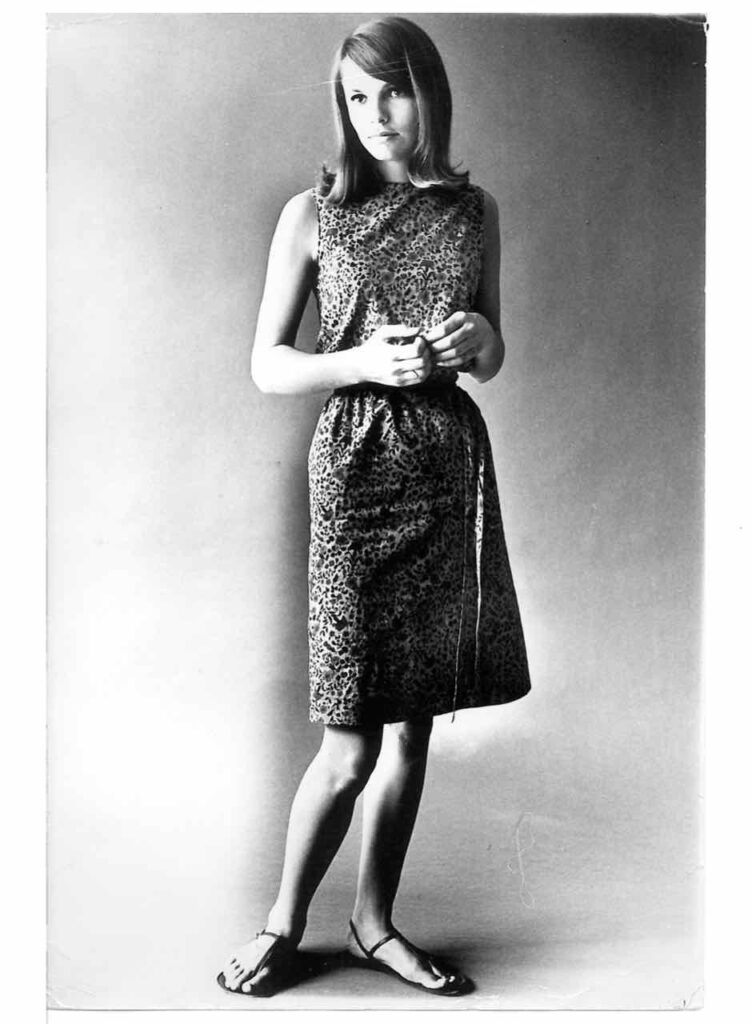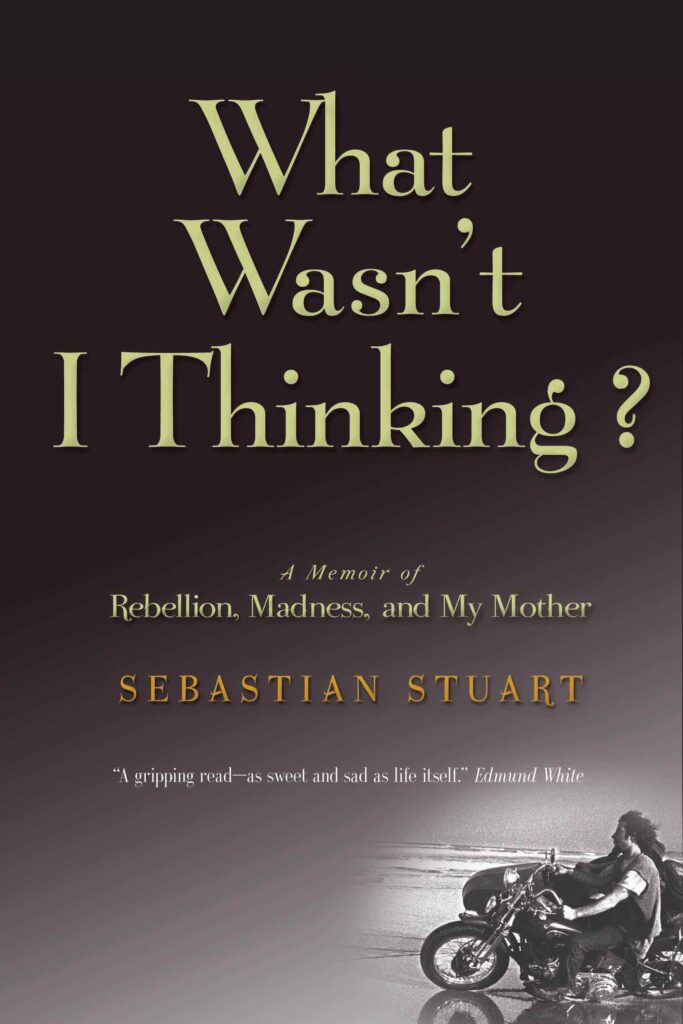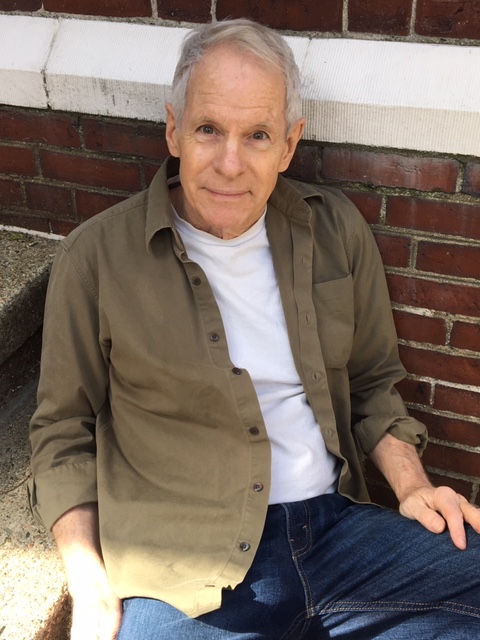Between the covers with…Sebastian Stuart
Sebastian Stuart is a full-time writer of plays, screenplays, political satire, and critically acclaimed novels, and was the credited ghostwriter of the novel Charm!, which spent five weeks on the New York Times bestseller list. What Wasn’t I Thinking?: A Memoir of Rebellion, Madness, and My Mother is his latest acclaimed work.
From Goodreads: Sebastian Stuart had a heady childhood. His brilliant, acerbic mother was the Entertainment Editor of Life magazine, and his father was an Oscar-nominated filmmaker. James Baldwin was a dinner guest and Bette Midler paid a courtesy call. Yet beneath the glittering parties, the family was haunted by unspoken tragedy.

By age fifteen Sebastian was dropping acid and turning tricks for money. He found friendship and solace with his cousin Tina, an aspiring poet and striking beauty who was signed by the Ford modeling agency. When Tina began to exhibit symptoms of schizophrenia, Sebastian was torn between a desire to save her and the fear of losing himself in her madness.
From San Francisco in the ’70s to New York in the AIDS-ravaged ’80s, Stuart’s quest for self-discovery leads to a sad and shocking understanding of his family history and the price of grief denied…
All of this is now captured in his memoir What Wasn’t I Thinking?: A Memoir of Rebellion, Madness, and My Mother.
Amy Hoffman: One of the major themes of the book is how wealth and fame, coupled with trauma and mental illness, reverberate down through the generations. In your family, the trauma was largely denied, with catastrophic consequences. You trace your family history, how it damaged you, and then how you were able to forge an understanding of these forces, gain control of them and go on to thrive.
What were the forces in your life that enabled you to go from a wild and impulsive young man to a fully functioning adult? How did you break the cycle?
Sebastian Stuart: Well, I’m not sure I’m fully functioning.
AH: You do a pretty good imitation.
SS: What drove me to change was the fact that I was miserable. I was just all tangled up in blue – making bad decisions, letting my insecurities get the best of me, acting out my anger. I could go on but you get the point.
In my thirties I began to seriously consider getting into therapy. I was going to yoga classes at Integral Yoga on West 13th street. The classes were helping me stay relaxed and focused. After one class I saw a flyer pinned to the bulletin board advertising a gay therapist, Peter Hendrickson. We met. Peter was sincere and smart and kind. He slowly, gently helped me uncover and understand the truth and how it continued to hinder me. Basically we untangled my bullshit.
A big part of the process was just talking, without interruptingly or qualifying or censoring myself. I dove in and didn’t come up for air for a couple of years. I had a lot to untangle. But when I did, I felt like a different person.

AH: It seems me that your sexual acting out was a crucial aspect of this growth. Tearoom sex, cruising, hustling, and doing drugs weren’t self-destructive and sordid but rather positive and affirming.
SS: I think they were both negative and positive. Sex can be used as a drug and I saw many of my contemporaries do just that. Abuse of any drug, is, by definition, harmful. It was tricky terrain to navigate. I think it still is. When does not enough turn into too much? My research into this question over the years has been stimulating. At the end of the day, I think every queer has to cobble together a balance that works for them. One size fits no one.
Age plays a factor. Running around trying to get laid at my age can be … exhausting.
Of course, Amy, you and I are both baby boomers. I just don’t have the stamina for some of acrobatics I used to indulge in. One less thing to worry about.
AH: Given gay-male culture’s history of worshipping young and beautiful males, do you think growing old is harder for gay men than for the general population?
SS: I don’t think growing old is easy for anyone. There are millions of older dykes still exploring their sexuality. But we can’t pretend that the actuary tables haven’t turned. You start to play whack-a-mole with your various ailments.
I think aging requires grace and courage. My dad, who was a great guy, had a rule that he would never discuss the slings and arrows he suffered. This made them less urgent and powerful which, in turn, made him seem younger. It’s a practice I try to emulate.
AH: You went to three different high schools and when you got to San Francisco State you didn’t pay much attention to your classes.
SS: I was a wild child. I’d always thought school was boring. I was hellbent for adventure. In my third year at State, I did develop an interest in theater. This led me to write a play and act in others. I think the exaggeration of the theater appealed to me. It attracted nutty, over-the-top types.
AH: You were really peripatetic during your SF years! You explain that you moved when you got bored or reckless. I especially wondered why you decided to move from San Francisco, which you loved so much, back to the fraught East Coast. In the book you just say, “it was time.” But why?
SS: I went back to New York to pursue my so-called career in the theater.
AH: You describe the fears and grief and loss of AIDS so vividly, and in a way that people who didn’t experience the epidemic may not have understood. How do the losses of AIDS affect your life now?
SS: I hope AIDS made me a better person. While it was heartbreaking and horrifying, the strength our community showed was profoundly moving. And truly powerful. At times it seemed like every queer in New York had joined the fight. We took care of our own. And we still are.
What Wasn’t I Thinking?: A Memoir of Rebellion, Madness, and My Mother is available wherever good books are sold.






